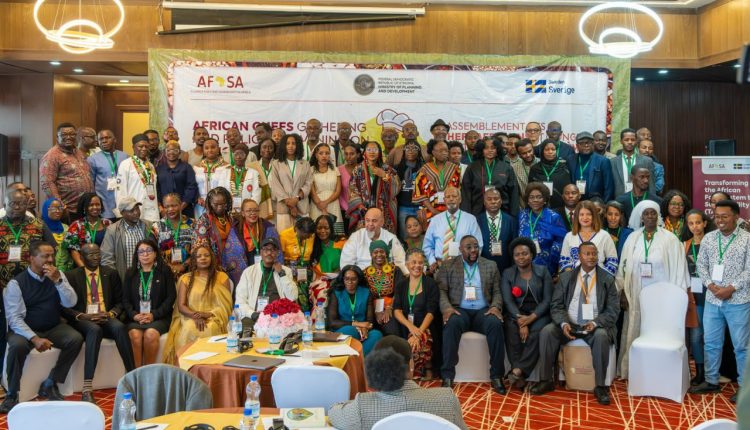African Culinary Leaders Rally for a Sovereign Food Future, Policy Change
Addis Ababa, July 26, 2025 (FMC) — The inaugural African Chefs Gathering and Policy Convening on African Food Systems concluded Friday in Addis Ababa with the adoption of a landmark declaration celebrating the continent’s rich culinary heritage while addressing the challenges and opportunities shaping Africa’s food future.
The gathering, held from July 23 to 25, brought together more than 140 chefs, policymakers, food advocates, and cultural leaders from 23 African countries. At its core, the event emphasized the centrality of African values—such as sharing, dignity, and healing—in revitalizing food systems that nourish both body and spirit.
In the declaration issued on the final day, participants affirmed the sacredness and beauty of Africa’s food systems, which have historically connected communities and sustained generations. The statement celebrated indigenous dishes rooted in ancestral wisdom, culinary rituals that honor lineage and community, and modern reinterpretations of traditional foods led by youth-driven enterprises using local ingredients.
The declaration also confronted a series of systemic challenges threatening the survival and sustainability of African food cultures. These include a growing generational disconnect from traditional culinary knowledge, educational curricula that marginalize African gastronomic traditions, and the structural exclusion of African cuisine from global culinary recognition. Participants also cited the adverse effects of climate change, policy neglect of indigenous crops, and lingering colonial narratives that continue to undermine the dignity and value of African food cultures.
Despite these challenges, the declaration expressed strong optimism, identifying numerous opportunities for revival and transformation across the continent. These include expanding intergenerational knowledge-sharing through schools and digital media, documenting ancestral food wisdom via cookbooks and food festivals, and empowering women and youth as central agents of change in the culinary space.
Policy recommendations featured prominently in the declaration, with calls for governments and institutions to prioritize local sourcing, community-led agricultural and gastronomic research, and storytelling initiatives that elevate the voices of African chefs and farmers as guardians of cultural heritage.
Above all, the declaration emphasized a collective commitment to transforming the vision into tangible action. Participants pledged to shape the future of African food systems by integrating ancestral knowledge and cultural pride—from kitchens and farms to policy forums and educational institutions—ensuring that African food remains a source of resilience, identity, and sovereignty.

